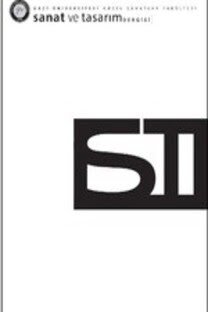Tahta ve Bakır Üflemeli Çalgı Çalan Müzisyenlerde Nefes Kontrolü
Tahta Üflemeli Çalgılar, Bakır Üflemeli Çalgılar, Nefes Kontrolü
Breath Control of Woodwind and Brass Instrument Players
Woodwind Instruments, Brass Instruments, Breath Control.,
___
- BAYDAR A.Burak (2003). Bakır Üflemeli Çalgılarda Nefes Kontrolü, Yüksek Lisans Tezi, Dokuz Eylül Üniversitesi Mü- zik Anabilim Dalı, Yayımlanmamış Yüksek Lisans Tezi.
- BOUHUYS Arend (1968). Pressure-low Events during during Wind Instrument Playing. Annals of the New York Aca- demy of Sciences, Sayı 155, Sayfa 264-274.
- GAUNT Helena (2004). Breathing and oboe:playing, teaching and learning, British Journal of Music Education, Sayı 21, Sayfa 313-328.
- HOPA Emre (2004). Fagot’ta Nefes ve Bedenin Kullanımı, Yüksek Lisans Tezi, Anadolu Üniversitesi Sosyal Bilimler Enstitüsü, Yayımlanmamış Yüksek Lisans Tezi.
- KEŞKEK Metin Mert (1992). Trompet ve Bakır Nefesli Çalgıların Nefes Sorunları, Yüksek Lisans Tezi, İstanbul Üniver- sitesi Fen Bilimleri Enstitüsü, Yayımlanmamış Yüksek Lisans Tezi.
- MIDDLESWORTH Jane L.Van (1978). An Analysis of Selected Respiratory and Cardiovascular Characteristics of Wind Instrument Performers, Yüksek Lisans Tezi, Eastman School of Music of the University of Rochester. Yayımlanma- mış Yüksek Lisans Tezi.
- MORRIS Matthew Blane (2005). The Teaching Methods of Lewis Hugh Cooper, Doktora Tezi, The Florida State Univer- sity School of Music. Yayımlanmamış Doktora Tezi.
- MULLER Lieut Jorgen Peter (1914). My Breathing System, Philadelphia David McKAY Publisher.
- ÖZTUNÇ Aytuğ (2005). Üflemeli Çalgıcının Anatomisi, Bemol Müzik Yayınları: İstanbul.
- SCARLETT William (1999). Breathe Like a Baby, Play Like an Angel, ITG Journal, Sayı 23, No 4, Sayfa 1-7.
- SEHMANN Karin Harfst (2000). The Effects of Breath Management Instruction on the Performance of Elementary Brass Players, Journal of Research in Music Education, No 48, Sayfa 136-150.
- THURMAN L. ve PRYOR A. ET AL. (2000). The Most Fundamental Voice Skill, L. Thurman & G. Welch, Bodymind and Voice: Foundations of Voice Education, Sayı 2, Sayfa 326–38. London/USA: The VoiceCare Network.
- WILLS Geoff ve COOPER Cary L. (1988). Pressure Sensitive: Popular Musicians Under Stress, London:Sage.
- ISSN: 1308-2264
- Yayın Aralığı: 2
- Başlangıç: 2015
- Yayıncı: Ankara Hacı Bayram Veli Üniversitesi
Puantiyeli Sonsuzluğun Obsesif Sanatçısı: Yayoi Kusama
Tarihsel Süreç İçinde Heykel Formu
Sıdıka SEVİM, Duygu KAHRAMAN, Gülçin ÇAVDAR
Osmanlı Çini ve Seramiklerinde Giyim Kuşam Kültürü ve Özellikleri
Mağara Resminden Sanat Fuarına: Sanat ve Endüstrinin Yarattığı Kültürel Nesnelerin Metaya Dönüşümü
Tahta ve Bakır Üflemeli Çalgı Çalan Müzisyenlerde Nefes Kontrolü
